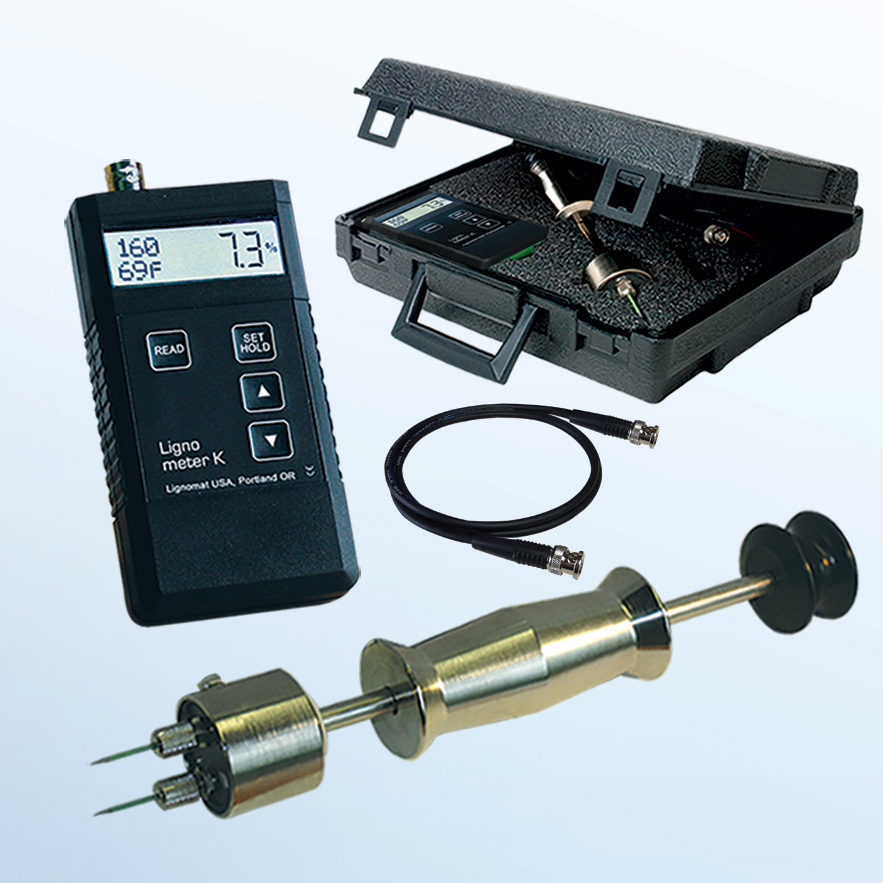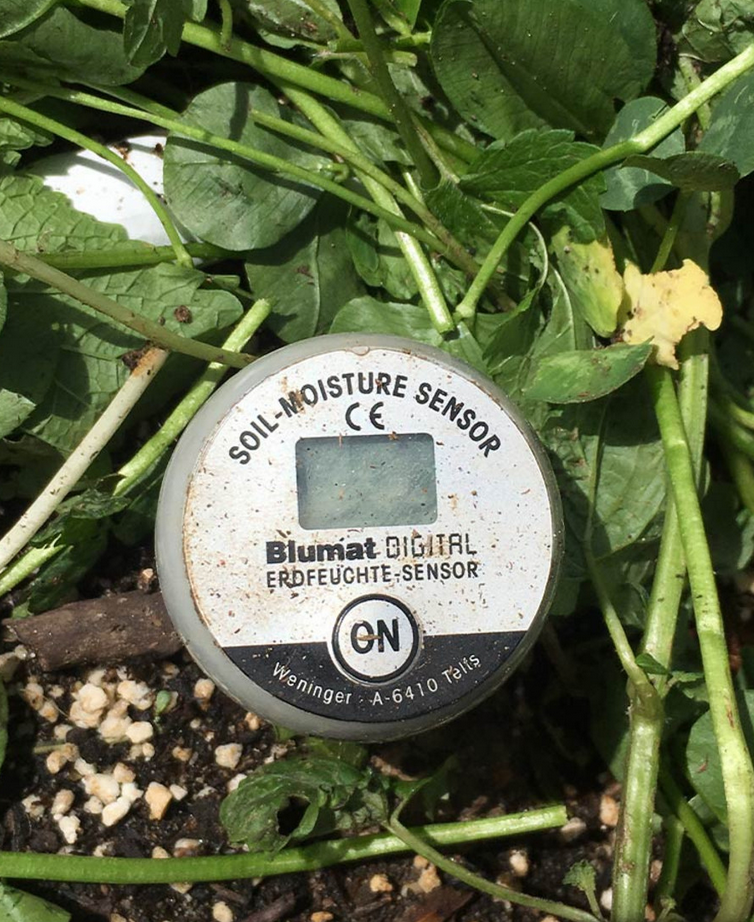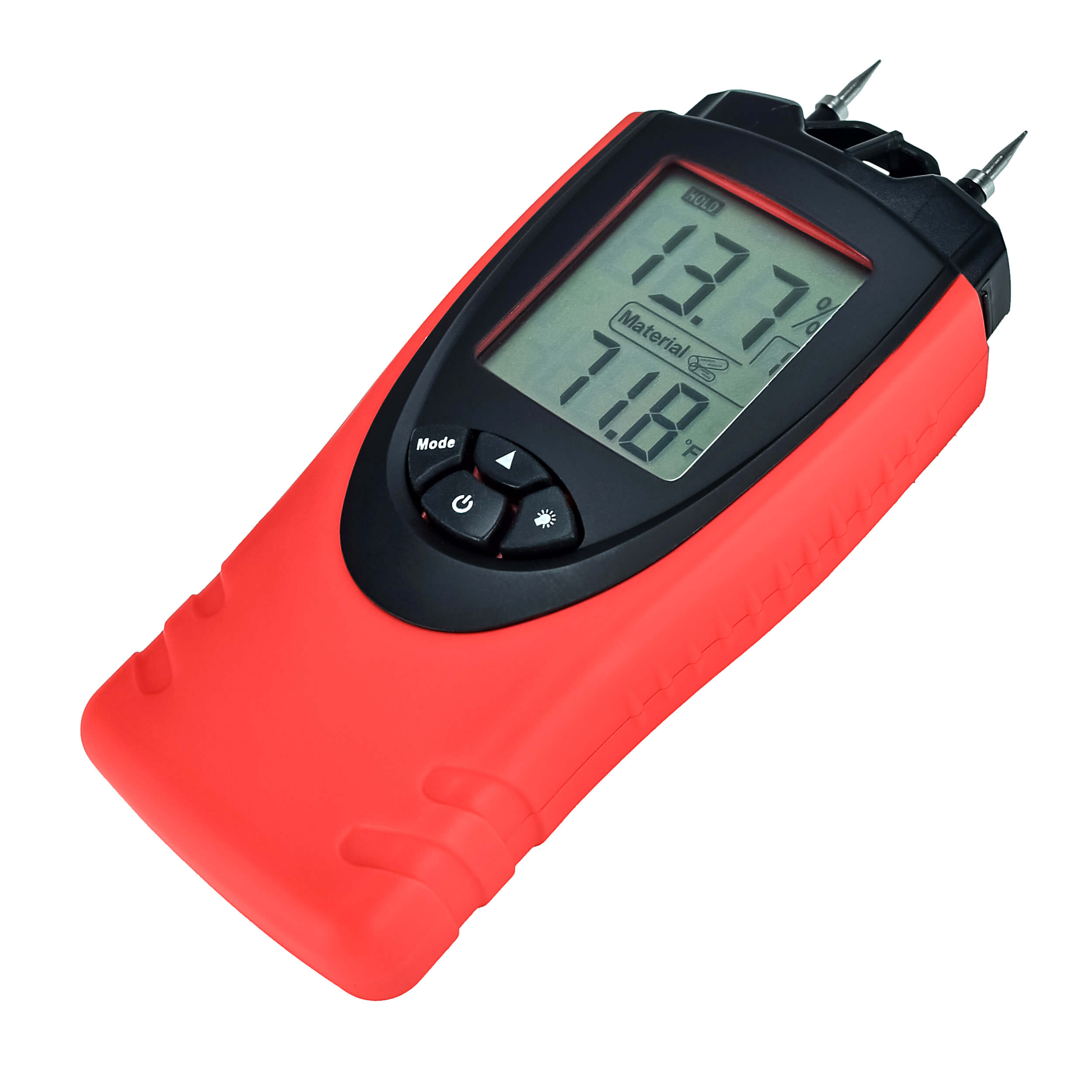The Ultimate Overview to Moisture Meters: A Comprehensive Introduction and How They Can Save You Money
In the realm of structure upkeep, building and construction, and numerous industries, the value of properly measuring moisture levels can not be overstated. Wetness meters act as indispensable devices in identifying and keeping track of moisture web content in materials, assisting in avoiding pricey damages and ensuring the quality of products. Comprehending the nuances of various kinds of dampness meters, their applications, and the prospective cost-saving advantages they provide can be a game-changer for experts and services alike. Discovering just how these gadgets can not only improve processes however likewise add to monetary savings is a trip worth starting.
Types of Moisture Meters
Different kinds of wetness meters are offered for various applications in different markets. One common kind is the pin-type wetness meter, which determines the electrical resistance between 2 pins inserted into a product. This kind appropriates for wood, drywall, and other structure materials. Pinless moisture meters, on the various other hand, usage electro-magnetic sensing unit plates to check a bigger area without triggering damage to the material's surface area. These meters are suitable for quickly evaluating moisture degrees in big areas such as floors and walls.
Moreover, there are additionally specialty dampness meters made for specific products like soil, grain, or hay. These meters give accurate dampness analyses customized to the unique residential or commercial properties of the material being checked. Infrared dampness meters measure the thermal properties of a material to identify its moisture material non-invasively, making them useful for applications where pin or pinless meters may not appropriate. Understanding the various kinds of wetness meters readily available can help markets select one of the most appropriate device for their certain moisture measurement demands.

Advantages of Utilizing Moisture Meters

Additionally, using moisture meters can cause boosted power performance. By identifying areas with high dampness levels, such as leakages or poor insulation, modifications can be made to improve energy conservation and minimize energy prices. In agricultural settings, dampness meters play a crucial function in enhancing plant yields by allowing farmers to check soil dampness find this levels and make notified irrigation decisions. Generally, the benefits of using dampness meters cover across various industries, supplying affordable options and promoting better this article quality assurance methods.
Exactly How to Select the Right Moisture Meter
Selecting the proper wetness meter involves taking into consideration vital factors such as material compatibility, measurement variety, and calibration precision. When selecting a moisture meter, it's vital to make certain that the meter is suitable for the specific product you will be testing. Various products have differing electric residential or commercial properties that can affect wetness readings, so selecting a meter designed for your material is critical for precise results. Additionally, consider the dimension series of the moisture meter. Make certain that the meter can spot dampness levels within the variety required for your applications. Calibration accuracy is another vital element to remember (Moisture Meter). Choose a wetness meter with trusted calibration to make sure constant and specific readings. Some meters might need periodic calibration modifications, so understanding the calibration process is important. By thoroughly reviewing these factors, you can pick a dampness meter that fulfills your requirements and provides exact moisture dimensions for your tasks.
Proper Methods for Moisture Meter Use
To ensure precise dampness readings and take full advantage of the performance of a moisture meter, using appropriate methods is important. When making use of a pin-type dampness meter, put the pins or probes right into the product being tested till they make complete get in touch with. By following these proper methods, customers can depend on their moisture meter to offer trustworthy moisture degrees, helping in stopping pricey damage or guaranteeing high quality in different applications.

Price Cost Savings Through Moisture Meter Applications
Just how can the calculated usage of dampness meters result in substantial expense savings across various markets? Dampness meters play an essential function in cost savings by preventing prospective damage and ensuring top quality control in various markets. In the agriculture industry, moisture meters aid in identifying the optimum time for collecting plants, preventing excess or over-drying wetness that can influence the end product's high quality. This accurate surveillance aids farmers avoid unneeded losses and optimize their yield.

Additionally, in the food handling sector, wetness meters are important for keeping track of item top quality and making certain compliance with security laws. By precisely gauging wetness content in food products, makers can avoid perishing, keep freshness, and minimize waste, leading to substantial cost savings. On the whole, the strategic application of moisture meters is a useful financial investment that can result in significant cost decreases and enhanced effectiveness across different markets.
Conclusion
In verdict, dampness meters are valuable tools for spotting and gauging dampness levels in numerous products. By utilizing the ideal wetness meter and following correct methods, users can effectively avoid pricey problems caused by excess wetness.
Wetness meters serve as crucial tools in detecting and monitoring moisture material in materials, helping in avoiding pricey problems and guaranteeing the top quality of items. Infrared dampness meters measure the thermal residential or commercial properties of a product to determine its wetness content non-invasively, making them useful for applications where pin or pinless meters may not be suitable.Moisture meters supply indispensable benefits in precisely keeping an eye on and analyzing moisture levels in diverse products and settings. In farming setups, dampness meters play an important role in optimizing crop returns by allowing farmers to keep an eye on soil moisture levels and make notified watering choices.In verdict, wetness meters are important tools for gauging and identifying moisture degrees in numerous materials.